Avocado
How to submit an article:
- Registered users can submit any published journal article that has a unique DOI (Digital Object Identifier) name or link to Research Hub.
- For example, you can paste the full DOI link:
https://doi.org/10.1109/5.771073or just the DOI name:10.1109/5.771073into the field above and click submit. - The person who is first to submit a valid article to Research Hub will forever be credited for it, and every article submission earns you +6 Research Points.
Sub-Topics:
Related Topics
Published research studies are articles that present the findings of original research that has undergone a peer-review process and has been made publicly available in scholarly journals, books or other media.

Effects of an Unripe Avocado Extract on Glycaemic Control in Individuals with Obesity: A Double-Blinded, Parallel, Randomised Clinical Trial
2023 Nov 17 Nutrients Zhao L, Ingram DK, Gumpricht E, De Paoli T, Teong XT, Liu B, et al.
Randomised Controlled Trial Glucose Blood Sugar AvocadoConsumption of unripe avocado extract in the diet may lower postprandial insulin levels in overweight adults with previously elevated insulin levels.
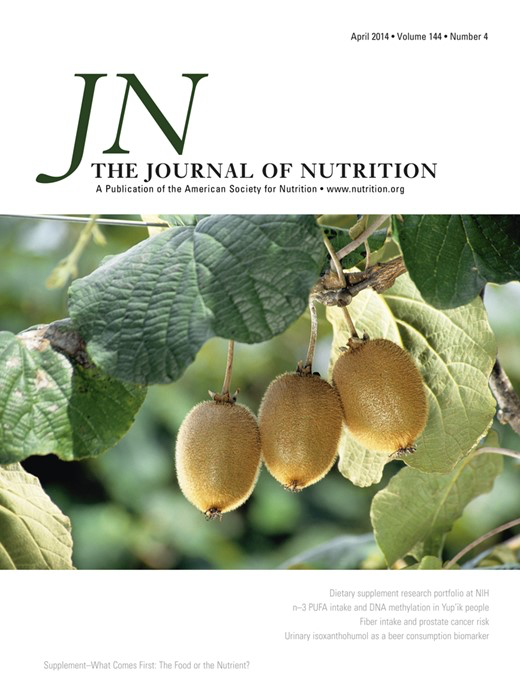
Associations between Metabolomic Biomarkers of Avocado Intake and Glycemia in the Multi-Ethnic Study of Atherosclerosis
2023 Oct The Journal of Nutrition Wood AC, Goodarzi MO, Senn MK, Gadgil MD, Graca G, Allison MA, et al.
Cohort Study Blood SugarAvocado consumption is linked to better glucose regulation, with metabolomic biomarkers of avocado intake showing even stronger associations with lower glycemia.
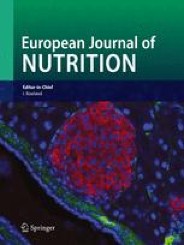
Avocado consumption and markers of inflammation: results from the Multi-Ethnic Study of Atherosclerosis (MESA)
2023 Mar 22 European Journal of Nutrition Cheng FW, Ford NA, Wood AC, Tracy R
Avocado consumption was not found to be associated with levels of inflammatory markers.
Cohort Study Avocado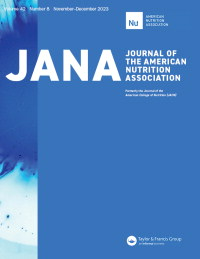
Avocado Oil ( Persea americana ) Reduces Epithelial Proliferation on Benign Prostatic Hyperplasia
2023 Feb 22 Journal of the American Nutrition Association da Silva VAP, Abboud RS, Contreiras EC, Boaventura GT, Chagas MA
Experimental Study Animal Study Benign Prostatic Hyperplasia Avocado OilAvocado oil appears to have a protective impact on the prostatic epithelium of Wistar rats subjected to induced prostate enlargement.

Identifying usual food choices with avocados in a clinical trial cohort of overweight and obese adults in Australia
2023 Jan 26 PLOS One Guan VX, Neale EP, Probst YC
Clinical Study AvocadoAvocado consumption correlates with a wider variety of healthier food choices, offering potential benefits for weight control strategies.
Research insights are moderated by the Research Hub team and offer an at-a-glance overview of interesting research findings.

2023 Nutrients
Consumption of unripe avocado extract in the diet may lower postprandial insulin levels in overweight adults with previously elevated insulin levels.
Randomised Controlled Trial Blood Sugar Glucose
Effects of an Unripe Avocado Extract on Glycaemic Control in Individuals with Obesity: A Double-Blinded, Parallel, Randomised Clinical Trial
Zhao L, Ingram DK, Gumpricht E, De Paoli T, Teong XT, Liu B, et al.

2023 The Journal of Nutrition
Avocado consumption is linked to better glucose regulation, with metabolomic biomarkers of avocado intake showing even stronger associations with lower glycemia.
Cohort Study Blood Sugar
Associations between Metabolomic Biomarkers of Avocado Intake and Glycemia in the Multi-Ethnic Study of Atherosclerosis
Wood AC, Goodarzi MO, Senn MK, Gadgil MD, Graca G, Allison MA, et al.

2023 Journal of the American Nutrition Association
Avocado oil appears to have a protective impact on the prostatic epithelium of Wistar rats subjected to induced prostate enlargement.
Experimental Study Avocado Oil Benign Prostatic Hyperplasia
Avocado Oil (
Persea americana
) Reduces Epithelial Proliferation on Benign Prostatic Hyperplasia
da Silva VAP, Abboud RS, Contreiras EC, Boaventura GT, Chagas MA

2023 PLOS One
Avocado consumption correlates with a wider variety of healthier food choices, offering potential benefits for weight control strategies.
Clinical Study
Identifying usual food choices with avocados in a clinical trial cohort of overweight and obese adults in Australia
Guan VX, Neale EP, Probst YC
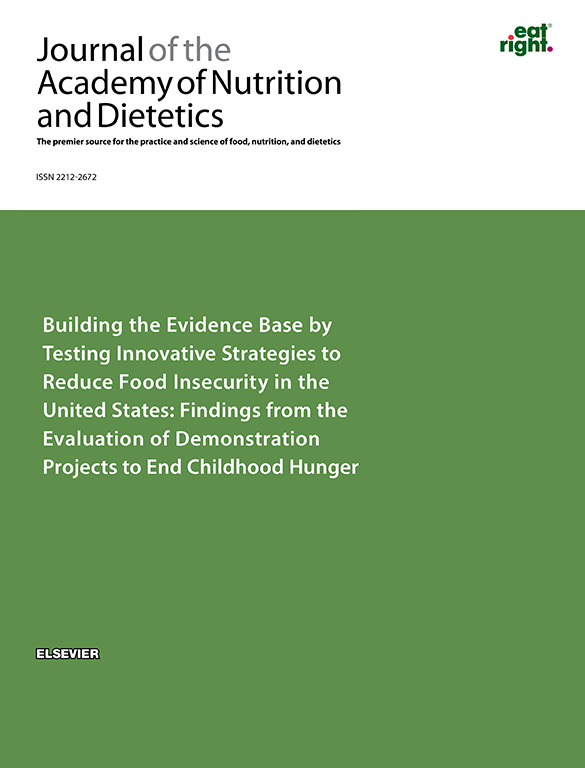
2022 Journal of the Academy of Nutrition and Dietetics
Avocado consumption may lead to a reduction in total cholesterol and low-density lipoprotein cholesterol levels in people with high cholesterol without impacting body weight.
Systematic Review Cholesterol
Avocado Consumption and Cardiometabolic Health: A Systematic Review and Meta-Analysis
James-Martin G, Brooker PG, Hendrie GA, Stonehouse W
Review Articles
Review articles summarise and critically evaluate the current state of research on a specific topic or field by synthesising multiple primary research studies.

Avocado Consumption and Cardiometabolic Health: A Systematic Review and Meta-Analysis
2022 Dec Journal of the Academy of Nutrition and Dietetics James-Martin G, Brooker PG, Hendrie GA, Stonehouse W
Systematic Review Meta-Analysis Cholesterol AvocadoAvocado consumption may lead to a reduction in total cholesterol and low-density lipoprotein cholesterol levels in people with high cholesterol without impacting body weight.

A Comprehensive Review of Hass Avocado Clinical Trials, Observational Studies, and Biological Mechanisms
2021 Dec 07 Nutrients Dreher ML, Cheng FW, Ford NA
Review Article Gut Microbiota Avocado Cardiovascular DiseaseFresh Hass avocados have been found to reduce cardiovascular disease risk, assist weight loss, improve cognitive function, and promote colonic microbiota health.
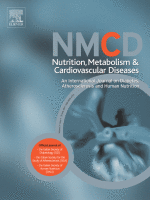
The effects of foods on LDL cholesterol levels: A systematic review of the accumulated evidence from systematic reviews and meta-analyses of randomized controlled trials
2021 May Nutrition, Metabolism and Cardiovascular Diseases Schoeneck M, Iggman D
Systematic Review Turmeric Walnut Avocado Tumeric Almond Green Tea Tomato FlaxseedConsumption of certain foods like rapeseed/canola oil, avocados, and turmeric can lead to moderate to large reductions in LDL cholesterol levels.

The Forgotten Fruit: A Case for Consuming Avocado Within the Traditional Mediterranean Diet
2020 May 29 Frontiers in Nutrition Ford NA, Liu AG
Review Article Mediterranean Diet AvocadoIncorporating avocados into the Mediterranean diet may enhance its benefits, offering greater health flexibility and adaptability for non-Mediterranean residents.
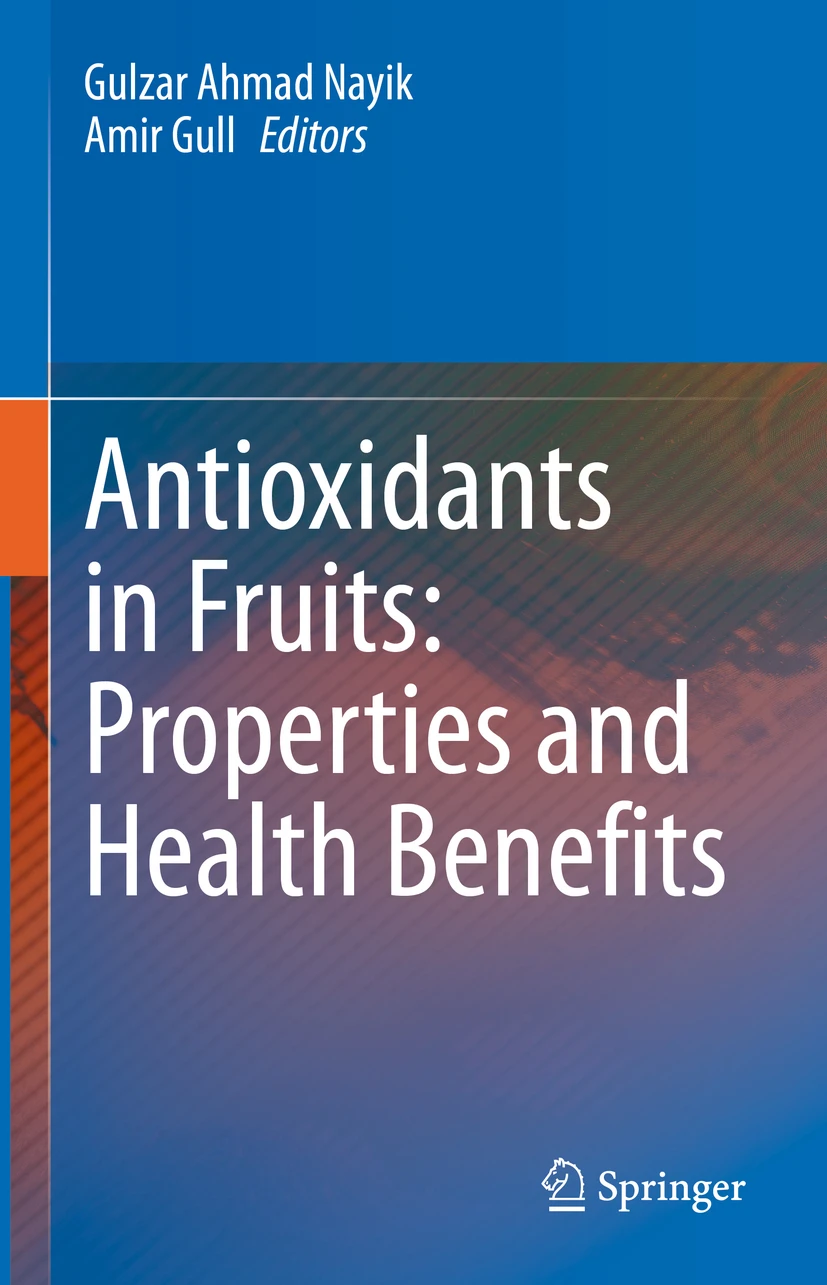
Avocado
2020 Jan Antioxidants in Fruits: Properties and Health Benefits Majid D, Dar BN, Parveen S, Jabeen A, Allai FM, Sofi SA, et al.
Review Article Health Benefits Antioxidant AvocadoAvocado, particularly the Hass variety, has substantial health benefits due to its rich contents of nutrients, fiber, and bioactive constituents including antioxidants.
Clinical Trials
Clinical trials are research studies that involve people and are conducted to evaluate the safety and efficacy of new treatments or interventions, such as drugs, medical devices, or behavioural therapies.

Effects of an Unripe Avocado Extract on Glycaemic Control in Individuals with Obesity: A Double-Blinded, Parallel, Randomised Clinical Trial
2023 Nov 17 Nutrients Zhao L, Ingram DK, Gumpricht E, De Paoli T, Teong XT, Liu B, et al.
Randomised Controlled Trial Glucose Blood Sugar AvocadoConsumption of unripe avocado extract in the diet may lower postprandial insulin levels in overweight adults with previously elevated insulin levels.

Effect of Incorporating 1 Avocado Per Day Versus Habitual Diet on Visceral Adiposity: A Randomized Trial
2022 Jul 19 Journal of the American Heart Association Lichtenstein AH, Kris‐Etherton PM, Petersen KS, Matthan NR, Barnes S, Vitolins MZ, et al.
Randomised Controlled Trial Visceral Fat AvocadoDespite previous suggestions, daily avocado consumption for six months did not decrease visceral adipose tissue volume in individuals with elevated waist circumference.
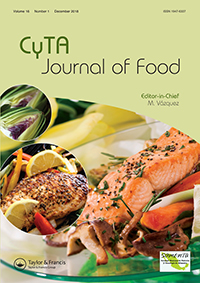
Effect of avocado honey on anthropometric and biochemical parameters in healthy subjects: a pilot randomised controlled trial
2022 Jun 16 CyTA - Journal of Food Hernández Salazar M, Flores A, Ramírez E, Llaca Díaz J, Rodríguez B, Castro H
Randomised Controlled Trial AvocadoAvocado honey, rich in bioactive compounds, can serve as a natural sweetener without negatively impacting anthropometric and biochemical parameters.

Changes in Biomarkers of Non-Alcoholic Fatty Liver Disease (NAFLD) upon Access to Avocados in Hispanic/Latino Adults: Secondary Data Analysis of a Cluster Randomized Controlled Trial
2022 Jun 30 Nutrients Pacheco LS, Bradley RD, Anderson CAM, Allison MA
The study found that varied intake of avocados had no significant effects on biomarkers of NAFLD in healthy adults, free of severe chronic disease.
Randomised Controlled Trial NAFLD Avocado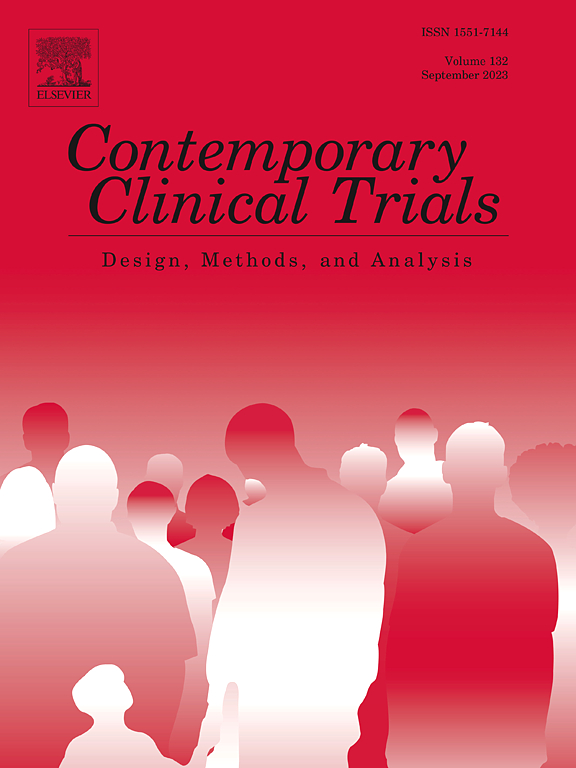
The design and rationale of a multi-center randomized clinical trial comparing one avocado per day to usual diet: The Habitual Diet and Avocado Trial (HAT)
2021 Nov Contemporary Clinical Trials Reboussin DM, Kris-Etherton PM, Lichtenstein AH, Li Z, Sabate J, Matthan NR, et al.
Randomised Controlled Trial Heart Disease Type 2 Diabetes Avocado Cardiometabolic Disease Cardiovascular Disease Visceral Fat Habitual Diet ObesityConsumption of one avocado per day can potentially reduce visceral adiposity and subsequently decrease the risk of diabetes and cardiovascular disease.
Study Protocols
Published study protocols are detailed plans that outline the objectives, methodology, statistical analyses, and organisation of a research study that have been made publicly available for others to review and use as a reference.
Presentation Slides

Randomised Controlled Trial
Consumption of unripe avocado extract in the diet may lower postprandial insulin levels in overweight adults with previously elevated insulin levels.
Zhao L, Ingram DK, Gumpricht E, De Paoli T, Teong XT, Liu B, Mori TA, Heilbronn LK, Roth GS

Cohort Study
Avocado consumption is linked to better glucose regulation, with metabolomic biomarkers of avocado intake showing even stronger associations with lower glycemia.
Wood AC, Goodarzi MO, Senn MK, Gadgil MD, Graca G, Allison MA, Tzoulaki I, Mi MY, Greenland P, Ebbels T, Elliott P, Tracy RP, Herrington DM, Rotter JI

Experimental Study
Avocado oil appears to have a protective impact on the prostatic epithelium of Wistar rats subjected to induced prostate enlargement.
da Silva VAP, Abboud RS, Contreiras EC, Boaventura GT, Chagas MA

Clinical Study
Avocado consumption correlates with a wider variety of healthier food choices, offering potential benefits for weight control strategies.
Guan VX, Neale EP, Probst YC

Systematic Review
Avocado consumption may lead to a reduction in total cholesterol and low-density lipoprotein cholesterol levels in people with high cholesterol without impacting body weight.
James-Martin G, Brooker PG, Hendrie GA, Stonehouse W

Randomised Controlled Trial
Despite previous suggestions, daily avocado consumption for six months did not decrease visceral adipose tissue volume in individuals with elevated waist circumference.
Lichtenstein AH, Kris‐Etherton PM, Petersen KS, Matthan NR, Barnes S, Vitolins MZ, Li Z, Sabaté J, Rajaram S, Chowdhury S, Davis KM, Galluccio J, Gilhooly CH, Legro RS, Li J, Lovato L, Perdue LH, Petty G, Rasmussen AM, Segovia‐Siapco G, Sirirat R, Su

Randomised Controlled Trial
Avocado honey, rich in bioactive compounds, can serve as a natural sweetener without negatively impacting anthropometric and biochemical parameters.
Hernández Salazar M, Flores A, Ramírez E, Llaca Díaz J, Rodríguez B, Castro H

Cohort Study
Eating more avocados, specifically two servings a week, is associated with a significantly lesser risk of cardiovascular disease and coronary heart disease.
Pacheco LS, Li Y, Rimm EB, Manson JAE, Sun Q, Rexrode K, Hu FB, Guasch‐Ferré M

Clinical Study
Daily oral consumption of one avocado enhances the elasticity and firmness of the facial skin in healthy women.
Henning SM, Guzman JB, Thames G, Yang J, Tseng CH, Heber D, Kim J, Li Z

Experimental Study
PIASCLEDINE-ExpASU®, a type of avocado/soybean unsaponifiable product, displays superior pharmacological activity due to its unique composition, including a high inhibitory effect on pro-inflammatory factors.
Lambert C, Bellemère G, Boyer G, Ponelle F, Bauer T, Legeny MC, Baudouin C, Henrotin Y

Review Article
Fresh Hass avocados have been found to reduce cardiovascular disease risk, assist weight loss, improve cognitive function, and promote colonic microbiota health.
Dreher ML, Cheng FW, Ford NA

Randomised Controlled Trial
High avocado intake significantly reduces the intake of energy and various macro and micronutrients in Hispanic/Latino families.
Pacheco LS, Bradley RD, Denenberg JO, Anderson CAM, Allison MA

Randomised Controlled Trial
Consumption of one avocado per day can potentially reduce visceral adiposity and subsequently decrease the risk of diabetes and cardiovascular disease.
Reboussin DM, Kris-Etherton PM, Lichtenstein AH, Li Z, Sabate J, Matthan NR, Petersen K, Rajaram S, Vitolins M, Ford N

Cohort Study
The consumption of avocado is associated with better cognitive function in older adults.
Cheng FW, Ford NA, Taylor MK

Systematic Review
Consumption of certain foods like rapeseed/canola oil, avocados, and turmeric can lead to moderate to large reductions in LDL cholesterol levels.
Schoeneck M, Iggman D
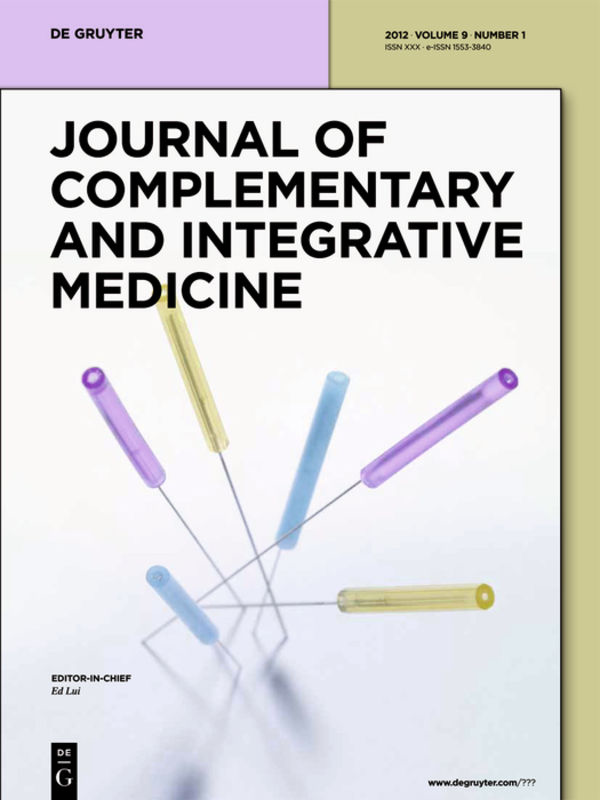
Randomised Controlled Trial
Avocado/soy unsaponifiables effectively treat osteoarthritis by controlling the balance between oxidant and antioxidant molecular markers.
Jangravi Z, Basereh S, Zaree Mahmoudabadi A, Saberi M, Alishiri GH, Korani M

Experimental Study
The ethanol extract of avocado seeds demonstrates an anti-endometriosis effect, potentially providing a new alternative treatment for endometriosis.
Minko Essono S, Mvondo MA, Ngadjui E, Kemka Nguimatio FX, Watcho P

Review Article
Incorporating avocados into the Mediterranean diet may enhance its benefits, offering greater health flexibility and adaptability for non-Mediterranean residents.
Ford NA, Liu AG

Randomised Controlled Trial
Daily avocado consumption improves attentional inhibition and increases serum lutein concentrations, irrespective of changes in lutein status, in adults with obesity.
Edwards CG, Walk AM, Thompson SV, Reeser GE, Erdman JW, Burd NA, Holscher HD, Khan NA
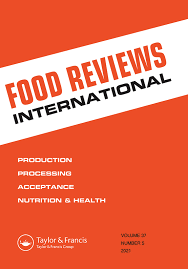
Review Article
Bioactive compounds found in avocado waste products exhibit various biological properties, with potential applications in the food and pharmaceutical industries.
Jimenez P, Garcia P, Quitral V, Vasquez K, Parra-Ruiz C, Reyes-Farias M, Garcia-Diaz DF, Robert P, Encina C, Soto-Covasich J
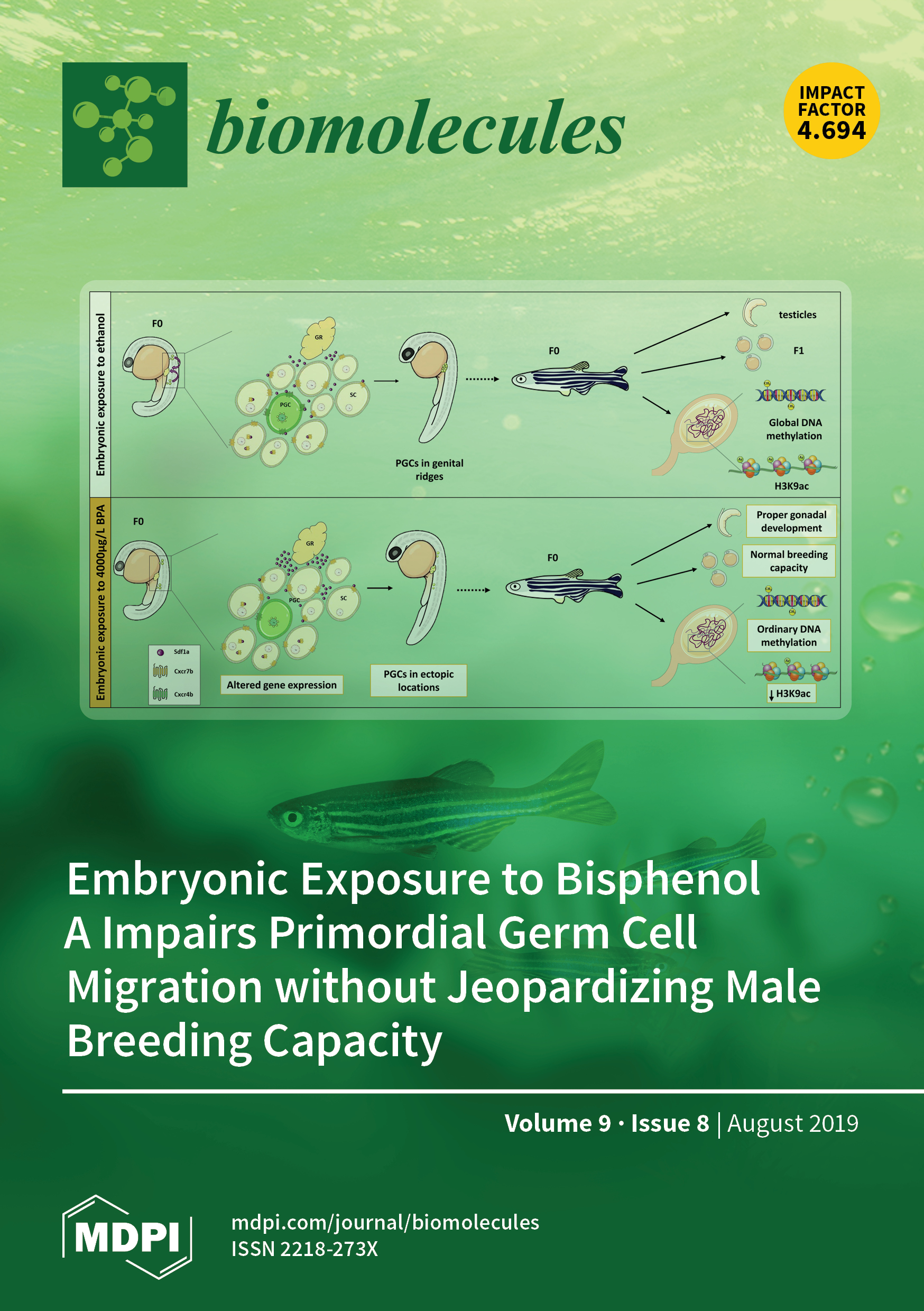
Review Article
Avocado and soybean unsaponifiables may effectively reduce inflammation and symptoms related to osteoarthritis, autoimmune diseases, and menopause.
Salehi B, Rescigno A, Dettori T, Calina D, Docea AO, Singh L, Cebeci F, Özçelik B, Bhia M, Dowlati Beirami A, Sharifi-Rad J, Sharopov F, C. Cho W, Martins N
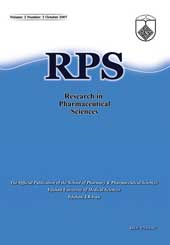
Network Pharmacology
Pomegranate fruit extract significantly enhances cartilage gene expression and chondrogenesis in human adipose-derived stem cells compared to Avocado/Soybean Unsaponifiable.
Bahramian H, Teimourinejad A, Hashemibeni B, Salehi H, Mostafavi FS, Kazemi M

Review Article
Avocado, particularly the Hass variety, has substantial health benefits due to its rich contents of nutrients, fiber, and bioactive constituents including antioxidants.
Majid D, Dar BN, Parveen S, Jabeen A, Allai FM, Sofi SA, Ganaie TA
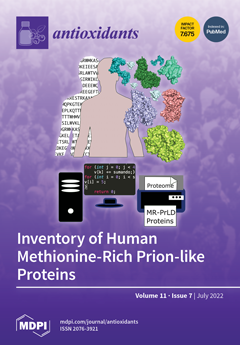
Review Article
Avocado's nutritional and therapeutic properties show potential for novel drug discovery in prevention and treatment of prevalent diseases such as cancer, diabetes, and cardiovascular issues.
Bhuyan , Alsherbiny , Perera , Low , Basu , Devi , Barooah , Li , Papoutsis
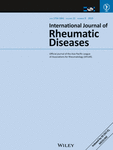
Systematic Review
Avocado-soybean unsaponifiables treatment is effective in reducing knee osteoarthritis symptoms without increasing adverse events, contrary to those with hip osteoarthritis.
Simental‐Mendía M, Sánchez‐García A, Acosta‐Olivo CA, Vilchez‐Cavazos F, Osuna‐Garate J, Peña‐Martínez VM, Simental‐Mendía LE
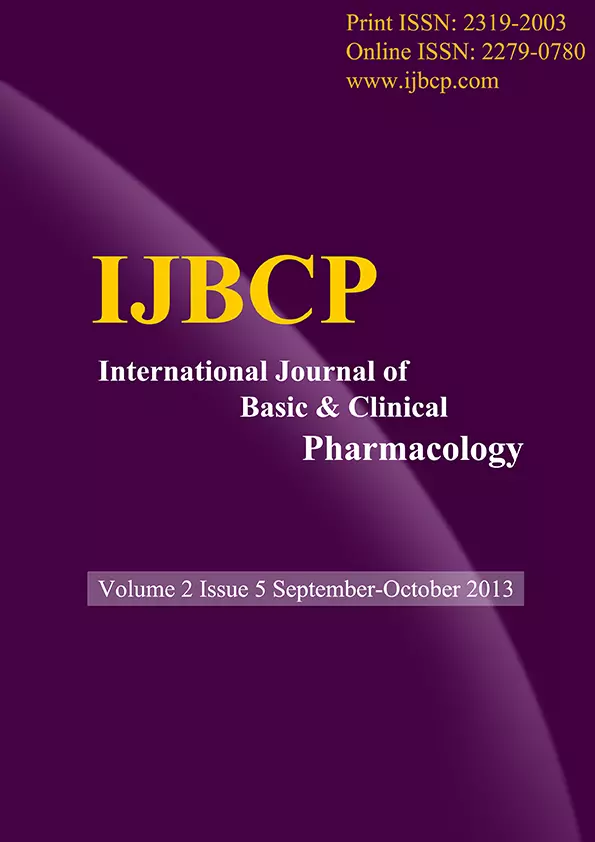
Randomised Controlled Trial
Avocado oil supplement combined with exercise improves joint function in osteoarthritis over traditional treatments like NSAIDS and multivitamins with exercise.
Chandra A, Kumar A, Kumar M, Kumar M, Dikshit H

Systematic Review
Consumption of virgin avocado oil, rich in monounsaturated fatty acids and bioactive components, may help manage chronic diseases like hypertension, diabetes, and lower cardiometabolic risk.
Tan CX

Systematic Review
Avocado, with its lipid-lowering, antihypertensive, antidiabetic, anti-obesity, and cardioprotective effects, can potentially manage metabolic syndrome more efficaciously than synthetic treatment options.
Tabeshpour J, Razavi BM, Hosseinzadeh H
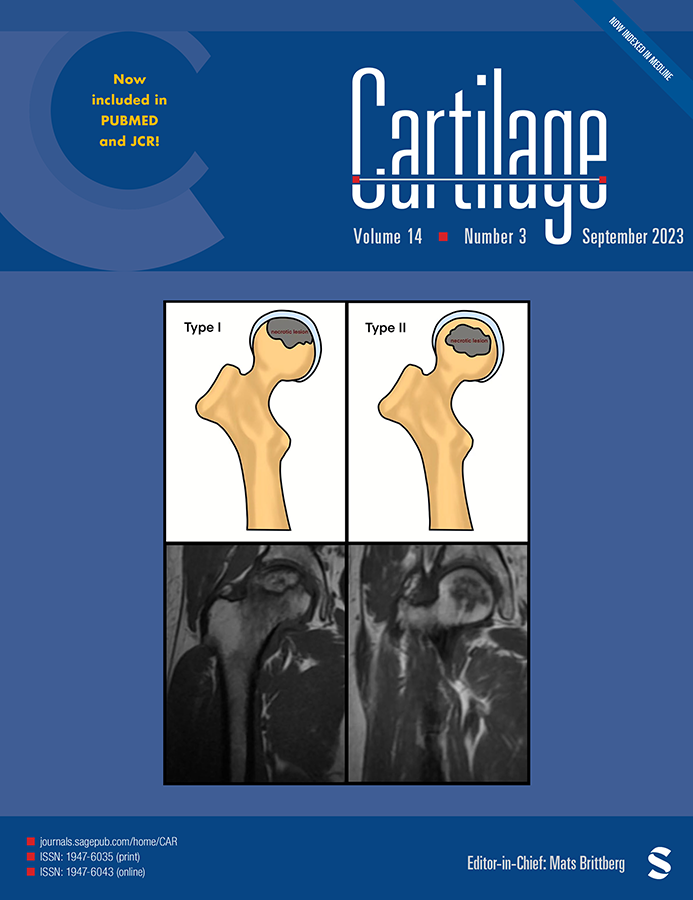
Review Article
A dietary supplement Avocado/Soybean Unsaponifiables aids in treating Osteoarthritis by preventing cartilage degradation and promoting cartilage repair, thereby reducing pain and enhancing joint functionality.
Christiansen BA, Bhatti S, Goudarzi R, Emami S
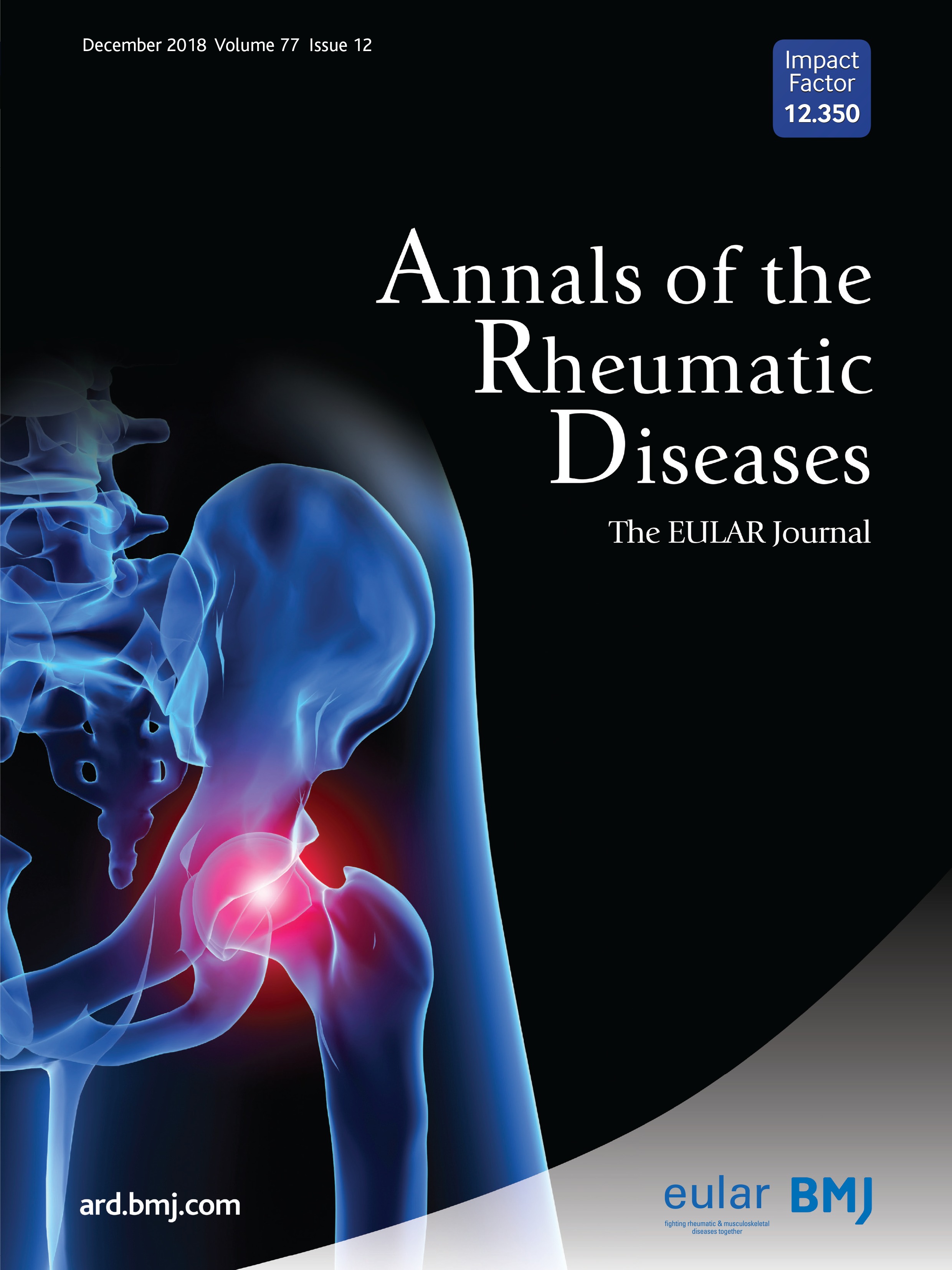
Randomised Controlled Trial
The daily use of avocado-soybean unsaponifiable-expanscience (ASU-E) reduces the progression of joint space narrowing in patients with hip osteoarthritis.
Maheu E, Cadet C, Marty M, Moyse D, Kerloch I, Coste P, Dougados M, Mazières B, Spector TD, Halhol H, Grouin JM, Lequesne M
Executive Summary
Write an executive summary in the form of a blog article on the topic of "Research into Chinese medicine treatment for Avocado" summarising the research below and using language that can be easily understood by patients and avoiding medical jargon using a professional and caring tone of voice.
Write an executive summary in the form of a blog article on the topic of "Researched Chinese medicine treatments for Avocado" summarising the research below in an objective and easy to understand way, and using language that can be easily understood by patients. Group the article into Chinese medicine treatments first, followed by nutrition and other treatments. Avoid using medical jargon and use a professional and caring tone of voice.
Write me a concise but easy to understand executive summary on the topic of "Chinese medicine treatments for Avocado" based on the following research that I will give you. Your summary should be 2 paragraphs long in Australian English spelling and include references to the studies.
A Randomised Controlled Trial published in 2023 in the journal Nutrients found that Consumption of unripe avocado extract in the diet may lower postprandial insulin levels in overweight adults with previously elevated insulin levels. In this study, a double-blinded, randomised controlled trial was performed on 60 non-diabetic adults (with a majority of 47 being women, average age 48 years, BMI 34.0 kg/m). The participants were stratified by sex and randomised into two groups. One group daily consumed an extract from unripe avocado (10 g finely ground, freeze-dried unripe avocado), while the other took a placebo (10 g finely ground cornmeal supplemented with 5% spinach powder) over a period of 12 weeks. The primary outcome measured was the change in glucose area under the curve (AUC) in response to a 75 g oral glucose tolerance test. The results showed no significant differences between both groups in terms of glucose AUC, insulin AUC, or cardiovascular outcomes. However, in a subgroup analysis focusing on participants with above median baseline postprandial insulin levels, there was a notable reduction in insulin AUC in those who consumed the avocado extract compared to the placebo. This suggests that the daily consumption of an unripe avocado extract, enriched in MH, might not significantly impact glucose tolerance or insulin sensitivity in obese non-diabetic adults. Nonetheless, there seems to be a potential benefit of this intervention on postprandial insulin levels in individuals with initially elevated insulin responses.
A Cohort Study published in 2023 in the journal The Journal of Nutrition found that Avocado consumption is linked to better glucose regulation, with metabolomic biomarkers of avocado intake showing even stronger associations with lower glycemia. The study used baseline data from 6224 multi-ethnic older adults, including self-reported avocado intake, fasting glucose and insulin. Untargeted plasma proton nuclear magnetic resonance contributed to metabolomic features, with data available for a subset of 3438 participants. The researchers then assessed the incidence of type 2 diabetes over approximately an 18-year follow-up period. They conducted a metabolome-wide association study comparing avocado consumers to nonconsumers and examined the features' associations with glycemia, both cross-sectionally with fasting insulin and glucose, and longitudinally with the incidence of type 2 diabetes. The research identified three highly-correlated spectral features associated with avocado intake at metabolome-wide significance levels and grouped into a single biomarker. These features didn't demonstrate any strong associations with overall dietary quality or any of the 47 other food groups, reinforcing their validity as an avocado intake biomarker. While avocado intake had a modest effect on lowering fasting insulin, this effect was not significant when adjusting for participants' body mass index. However, the avocado intake biomarker was noticeably related to lower fasting glucose, lower fasting insulin, and a lower incidence of type 2 diabetes, even after adjusting for BMI. This illustrates the considerable influence of metabolomic insights in determining diet-health relationships and the importance of considering individual metabolic differences for health outcomes.
A Experimental Study published in 2023 in the journal Journal of the American Nutrition Association found that Avocado oil appears to have a protective impact on the prostatic epithelium of Wistar rats subjected to induced prostate enlargement. The methodology of this study involved the use of twenty-eight Wistar rats divided into four groups: a control group, an avocado oil group given an avocado oil-based diet, an induced group, and an avocado oil testosterone-induced group. The induction of prostate hyperplasia was achieved by subcutaneously implanting silicone pellets filled with testosterone for androgen stimulation in the induced group and avocado oil testosterone-induced group. The rats were euthanized after 12 weeks, their prostates collected for analysis, prepared for paraffin processing, and stained with hematoxylin-eosin and immunostaining for p63 nuclear antigen. The discussion of results reveals that the data showed a significant reduction in the thickness of the prostatic epithelium in the avocado oil testosterone-induced group compared to the plain induced group. This group also demonstrated a larger average alveolar area compared to the control group. More p63 in basal cells were observed in this group compared to both the avocado oil and control groups. Collagen remodeling was noted, with thicker fibers seen predominately in the control and avocado oil groups, while thinner fibers were more common in the induced and avocado oil testosterone-induced groups. These findings all suggest that avocado oil exerted a protective influence on the prostate under conditions of induced hyperplasia.
A Clinical Study published in 2023 in the journal PLOS One found that Avocado consumption correlates with a wider variety of healthier food choices, offering potential benefits for weight control strategies. The study created a comprehensive database of avocado-containing foods and drinks based on the AUSNUT 2011-13 food composition structure. The data pulled from four food-based clinical trials consisted of the usual food intake information from overweight and obese volunteers. The Apriori algorithm of association rules was employed as a two-step descriptive methodology to identify the associations between avocado consumption and choices of various foods at each mealtime using a nested hierarchical food group classification scheme. The findings revealed 34 separate avocado and avocado-inclusive foods and beverages. Avocado intake was prevalent within the studied cohort, with more than half consuming avocados regularly. Avocados were invariably associated with other food groups in main meal occasions, and during breakfast, lunch, and dinner, 68 food items containing avocados were identified for avocado consumers. This avocado-specific database offers insights into the variety of foods and beverages that incorporate avocados, reflecting broad food choices among regular avocado consumers.
A Systematic Review published in 2022 in the journal Journal of the Academy of Nutrition and Dietetics found that Avocado consumption may lead to a reduction in total cholesterol and low-density lipoprotein cholesterol levels in people with high cholesterol without impacting body weight. The study reviewed the impact of diets containing avocado on cardiometabolic risk factors compared with diets containing no or low amounts of avocado. Five electronic databases were searched aiming to identify studies published between 1990 and 2021. The selected studies included randomized controlled trials of three weeks or more and prospective cohort studies. In total, ten studies, nine controlled trials, and one observational study, met the inclusion criteria. Risk of bias was evaluated, and overall quality of the evidence was inspected. Meta-analyses were performed when there were three or more studies of the same design reporting the same outcome. Upon reviewing the results, the study found a minor, noteworthy reduction in total cholesterol levels in the avocado group as opposed to the control groups. There was no significant difference found in low-density lipoprotein cholesterol, high-density lipoprotein cholesterol, or triglycerides. However, in populations with hypercholesterolemia, avocado consumption demonstrated significant reductions in both total cholesterol and low-density lipoprotein cholesterol levels. It is also worth noting that consumption of avocados did not negatively affect body weight or composition.
A Randomised Controlled Trial published in 2022 in the journal Journal of the American Heart Association found that Despite previous suggestions, daily avocado consumption for six months did not decrease visceral adipose tissue volume in individuals with elevated waist circumference. The HAT Trial was a multicenter, randomized, controlled study designed to observe the effects of consuming one large avocado per day for six months on free-living individuals with an increased waist circumference. The primary measure of effect was the change in visceral adipose tissue volume, which was measured through magnetic resonance imaging. Other conditions related risk factors associated with cardiometabolic disorders were surveyed as secondary and additional endpoints. In results analysis, there was no significant alteration in visceral adipose tissue volume between the Avocado Supplemented and Habitual Diet Groups. No noteworthy differences were noticed in the secondary outcomes including hepatic fat fraction and certain components of the metabolic syndrome. Of the extra outcome measures, small but significant reductions were seen in total and low-density lipoprotein cholesterol in the Avocado Supplemented compared to the Habitual Diet Group. Changes in body weight, body mass index, insulin concentration and other measured factors were very similar between both groups, showing no considerable change due to avocado consumption.
A Randomised Controlled Trial published in 2022 in the journal CyTA - Journal of Food found that Avocado honey, rich in bioactive compounds, can serve as a natural sweetener without negatively impacting anthropometric and biochemical parameters. In this study, the researchers assessed the impact of consuming 25 grams of avocado honey daily for a period of four weeks on a group of 13 healthy individuals aged between 25 and 50 years, with Body Mass Indexes less than 25 kg/m2. The participants were divided into two groups, one acting as a control and the other as the honey consumption group. Despite the dietary addition of avocado honey, there were no significant deviations in the subjects' Body Mass Index and body fat percentage. Furthermore, it didn't affect biochemical parameters including fasting blood glucose, triglycerides, total cholesterol, high-density lipoprotein cholesterol, and low-density lipoprotein cholesterol. Consequently, avocado honey may be considered an effective functional food or natural sweetener.
A Cohort Study published in 2022 in the journal Journal of the American Heart Association found that Eating more avocados, specifically two servings a week, is associated with a significantly lesser risk of cardiovascular disease and coronary heart disease. The research analysis included 68,786 women from the Nurses' Health Study and 41,701 men from the Health Professionals Follow-up Study, who were free of cancer, coronary heart disease, and stroke at the start. Their diet was assessed using validated food frequency questionnaires at the start and then every four years. The researchers used Cox proportional hazards regressions to estimate hazard ratios. Over three decades of follow-up, 14,274 new cases of cardiovascular disease were documented, including 9,185 coronary heart disease events and 5,290 strokes. After adjusting for lifestyle and other dietary factors, it was found that compared to non-consumers, those who had higher avocado intake exhibited a lower risk of cardiovascular disease and coronary heart disease. No significant associations for stroke were detected. Furthermore, it was noted that replacing half a serving per day of certain fatty foods with equivalent amounts of avocado was linked with lower risk of cardiovascular disease.
A Clinical Study published in 2022 in the journal Journal of Cosmetic Dermatology found that Daily oral consumption of one avocado enhances the elasticity and firmness of the facial skin in healthy women. Thirty-nine healthy overweight women ranging from 27 to 73 years of age, with skin types classified as Fitzpatrick II-IV, were involved in an 8-week study. They were grouped into two: one group ate an avocado daily while the other maintained their usual diet. The assumption was to examine if the daily intake of avocado could alleviate skin aging. Clinical assessments, specifically concerning facial skin characteristics such as firmness, pigmentation, and hydration, were done using a testing tool, called a cutometer, at specific points on the face (forehead and under the eye). The minimal erythema dose was also determined using a standard systematic approach at the inner arm. In analyzing the results, it was observed that skin firmness and elasticity, specifically on the forehead, improved significantly for those who consumed an avocado daily over the 8-week trial period when compared to their state at the beginning. No noticeable changes were recorded in skin hydration, pigmentation, or resistance to UVB radiation amongst the women in the avocado group relative to the control group. That being said, over time, variations in skin conditions such as melanin, sebum, and erythema were observed in both groups.
A Experimental Study published in 2022 in the journal Frontiers in Pharmacology found that PIASCLEDINE-ExpASU®, a type of avocado/soybean unsaponifiable product, displays superior pharmacological activity due to its unique composition, including a high inhibitory effect on pro-inflammatory factors. The study began with the characterisation of the lipid content of seven different avocado/soybean unsaponifiable (ASU) products through gas chromatography analysis performed on a VARIAN 3400 chromatograph. In parallel, the effects of these products were tested on human osteoarthritis chondrocytes (cartilage cells) cultured in alginate beads. The researchers focused on the effects of these ASU products on aggrecan, key interleukins, and matrix metalloproteases. In terms of results, PIASCLEDINE-ExpASU® stood out due to a specific profile involving unique chromatographic peaks and the presence of specific compounds like alkyl furan fraction, alkyl triols, and squalene. Remarkably, this product showed heightened efficacy in inhibiting production of nitric oxide, interleukins, and catabolic factors. Meanwhile, excepting two products, the remaining ASUs showed varied capacity in increasing aggrecan production, a positive factor in the context of osteoarthritis treatment.
A Review Article published in 2021 in the journal Nutrients found that Fresh Hass avocados have been found to reduce cardiovascular disease risk, assist weight loss, improve cognitive function, and promote colonic microbiota health. The methodology used in this comprehensive review entailed conducting 19 clinical trials, five observational studies, and examination of several biological mechanisms. These focused on understanding and identifying the primary health effects of Hass avocados in different population groups such as healthy overweight or obese adults, older normal-weight adults, and overweight or obese women. The effects were thoroughly measured in terms of cardiovascular health, body weight, cognitive function, and colonic microbiota health. The primary health effects of Hass avocados were then linked to its unique nutritional properties - the unsaturated to saturated fat ratio, the presence of multifunctional prebiotic and viscous fiber, its low energy density, and the increase in carotenoid absorption facilitated by its oleic acid and water emulsion, particularly when combined with low-fat fruits and vegetables. The results indicated significant positive effects from consuming Hass avocados, especially when incorporated into a healthy dietary plan like the Mediterranean diet. Consumption of avocados was found to lead to reduced cardiovascular disease risk in healthy overweight or obese adults, primarily by undesirable cholesterol profiles and promoting vascular health. For overweight or obese women, it helped in weight reduction and lessened visceral fat tissue. The consumption of avocados improved cognitive function in both older normal-weight adults and young to middle age overweight adults, particularly their executive function. It was also found to enhance colonic microbiota health in overweight or obese individuals by fostering healthier microflora and fecal metabolites.
A Randomised Controlled Trial published in 2021 in the journal Nutrients found that High avocado intake significantly reduces the intake of energy and various macro and micronutrients in Hispanic/Latino families. In this research, Seventy-two Hispanic/Latino families without severe chronic disease and not following specific diets were selected. These families, each with at least three members and all residing in the same household, were divided into two groups. One group received a low allotment of avocados (three per week) and the other received a high allotment (fourteen per week). Along with the prescribed amounts of avocado, both groups underwent twelve bi-weekly nutrition education sessions over a period of six months. The study investigated the change in the families' total intake of energy, as well as macro and micronutrients as the primary outcomes. These assessments were made by comparing mean changes between groups at the end of the six months, while abiding by the intention-to-treat concept. The results showed a significant reduction in not just energy intake, but also the intake of carbohydrates, animal and vegetable protein, fats (including saturated and polyunsaturated fats), and micronutrients such as calcium, magnesium, sodium, potassium, iron, and vitamin D in the high avocado allotment group. Interestingly, the high allotment group reported a reduction of self-reported energy intake by a notable margin, much higher when compared to the decrease in the low allotment group. The study underscores the potential of culturally-appropriate plant-based interventions for improving nutritional status of at-risk families.
A Randomised Controlled Trial published in 2021 in the journal Contemporary Clinical Trials found that Consumption of one avocado per day can potentially reduce visceral adiposity and subsequently decrease the risk of diabetes and cardiovascular disease. The Habitual Diet and Avocado Trial was a multicenter, randomized, controlled study that evaluated the impact of daily avocado consumption over a period of six months. The experiment involved a large and diverse cohort. Participants were required to incorporate a daily avocado into their diet as a substitute for their regular dietary intake, notably those devoid of avocado consumption. Their progress was measured using magnetic resonance imaging (MRI) to ascertain the potential decrease in visceral adiposity, with individuals with increased waist circumference being the primary focus of the study. Additional measures such as hepatic lipid content, plasma lipid profiles, blood pressure and high sensitivity C-reactive protein were also part of the evaluation. The study showed promising results in terms of weight control and reduction of visceral adiposity among participants. Initial results suggest that the sense of satiety post avocado consumption may subsequently lead to an overall decrease in energy intake. Moreover, the daily consumption of avocados was observed to not only reduce visceral fat but also display potential benefits impacting cardiometabolic disease risk. The benefits of avocado consumption were notably apparent among a cohort with an increased waist circumference, thus confirming the potential health benefits of avocados in weight management and risk reduction of obesity-related diseases.
A Cohort Study published in 2021 in the journal Frontiers in Nutrition found that The consumption of avocado is associated with better cognitive function in older adults. In the methodology, the researchers conducted a cross-sectional study involving 2,886 participants aged 60 or older from the National Health and Nutrition Examination Survey 2011–2014. These participants were classified into two groups: those who consumed avocado or guacamole, and those who did not. Cognitive performance was evaluated using tests for immediate and delayed recall, the Animal Fluency test, and the Digit Symbol Substitution Test, with education-dependent z-scores calculated for each participant as the education level can impact cognitive function. To control for potential influencing factors, comparisons were made between consumers and non-consumers with independent sample t-tests and advanced statistical methods like ANCOVA. The study found that those who consumed avocado showed significantly better scores across every cognitive test and the global cognitive score compared to non-consumers. Even after adjustments for potential confounders, the positive differences persisted. These findings support the conclusion that consumption of avocado correlates positively with improved cognitive function amongst elderly adults.
A Systematic Review published in 2021 in the journal Nutrition, Metabolism and Cardiovascular Diseases found that Consumption of certain foods like rapeseed/canola oil, avocados, and turmeric can lead to moderate to large reductions in LDL cholesterol levels. The research was carried out by conducting a systematic evaluation of existing guidelines, systematic reviews, and Randomised Control Trials (RCTs); we have only referred to the latter for studies on coffee intake. This was done on databases such as PubMed, Cochrane Database of Systematic Reviews, and Cochrane Central Register of Controlled Trials, alongside a search on the Trip database for guidelines. The time frame for the study was from its inception up until June 2019 and October 2019 respectively. Studies were included if they were at least 13 days in duration and were in English. Using the Grading of Recommendations Assessment, Development, and Evaluation (GRADE) method, 37 guidelines, 108 systematic reviews, and 20 RCTs were evaluated to analyze the strength of evidence in the context of food impacts on LDL cholesterol levels. The results of the research reveal that foods high in unsaturated and low in saturated and trans fatty acids such as rapeseed or canola oil, those with added plant sterols/stanols, and those high in soluble fibre like oats, barley and psyllium cause moderate reductions in LDL cholesterol. A moderate to a large increase was observed with unfiltered coffee though. Soy protein, tomatoes, flaxseeds, and almonds cause small reductions. Meanwhile, foods like avocados and turmeric cause moderate to large reductions with a moderate level of evidence supporting this observation. Other foods like pulses, hazelnuts, walnuts, high-fiber/wholegrain foods, green tea result in small to moderate reductions, and sugar causes a small increase. Several foods identified were either neutral or had low or very low evidence regarding their effects on LDL cholesterol levels.
A Randomised Controlled Trial published in 2021 in the journal Journal of Complementary and Integrative Medicine found that Avocado/soy unsaponifiables effectively treat osteoarthritis by controlling the balance between oxidant and antioxidant molecular markers. The methodology used in this study was a double-blind, randomized, placebo-controlled, cross-over trial. Forty osteoarthritis patients were classified into two groups: one received avocado/soy unsaponifiables (ASU) for three months followed by three months of placebo, and the other group received a placebo first for three months followed by three months of ASU. The patients' oxidant status was evaluated by measuring their serum malonldialdehyde (MDA). Other measures such as total antioxidant capacity, reduced glutathione, and antioxidant enzymes like superoxide dismutase and catalase were also assessed. After three months of treatment, all patients who were given avocado/soy unsaponifiables exhibited a significant decrease in their serum MDA levels, indicating lower oxidative stress. In comparison, these levels were higher at baseline and after placebo treatment. Furthermore, the treatment with avocado/soy unsaponifiables resulted in positive changes in the patients' antioxidant levels. Analysis also showed that the effect of avocado/soy unsaponifiables was consistent, regardless of the sequence in which the medication was received. These findings demonstrate that avocado/soy unsaponifiables can contribute effectively to the treatment of osteoarthritis by regulating the balance between oxidant and antioxidant molecular markers.
A Experimental Study published in 2020 in the journal Evidence-Based Complementary and Alternative Medicine found that The ethanol extract of avocado seeds demonstrates an anti-endometriosis effect, potentially providing a new alternative treatment for endometriosis. Methodology: The study involved inducing endometriosis in female Wistar rats by grafting uterine fragments onto their peritoneum. Upon successful transplantation, these rats were orally treated with differing doses of an ethanol extract from Lauraceae seeds over a span of 7 days. Key benchmark measures included endometrial implant volume, as well as serum and lesion estradiol and progesterone levels. The study also analyzed the oxidative status of endometriosis lesions and carried out histological analysis of the lesions, uterus, and ovaries. Discussion of Results: The treatment with the ethanol extract of Lauraceae seeds resulted in a decrease in endometrial implant volume and a reduction in both serum levels and lesion levels of estradiol and progesterone. The oxidative status reflected an increased presence of key antioxidants in the endometriosis lesions. Histologically, the endometrium height was reduced, with an increase in the number of antral follicles and corpora lutea, alongside a decrease in luteinized unruptured follicles. Therefore, the study concluded the ethanol extract displayed a pronounced antiendometriosis effect.
A Review Article published in 2020 in the journal Frontiers in Nutrition found that Incorporating avocados into the Mediterranean diet may enhance its benefits, offering greater health flexibility and adaptability for non-Mediterranean residents. The research approach starts with an evaluation of the nutritional value of a Mediterranean diet, which is traditionally rich in fruits, vegetables, and oleic-acid-rich olive oil. This diet has been associated with lower risks of several chronic diseases. Simultaneously the paper introduces the subject of rising obesity rates globally. The study then evaluates the potential benefits of modifying the Mediterranean diet to include non-traditional fruits and vegetables that could provide more variety in food choices and greater adaptability for those living outside the Mediterranean region. The avocado, a fruit native to the Mediterranean climate and rich in beneficial nutrients like oleic acid and fiber, is proposed as a potential addition. Discussion of the study reveals an interesting proposition: including avocado in the traditional Mediterranean diet, which is not commonly done. The avocado's health benefits and nutritional value are then analysed in depth, drawing from existing research studies, to substantiate the recommendation for incorporating this fruit into the Mediterranean dietary pattern. The discussion concludes by highlighting the potential enhanced health benefits that can result from this inclusion, thereby presenting a compelling case for the suggested adjustment.
A Randomised Controlled Trial published in 2020 in the journal International Journal of Psychophysiology found that Daily avocado consumption improves attentional inhibition and increases serum lutein concentrations, irrespective of changes in lutein status, in adults with obesity. The study involved a randomized-controlled trial with 84 adults aged 25-45 years suffering from overweight or obesity. The participants were divided into a treatment group and a control group. Those in the treatment group consumed a daily meal with fresh Hass avocado for 12 weeks while the control group was given an isocaloric meal. The xanthophyll status was evaluated by measuring serum lutein and macular pigment optical density, and cognitive functions such as attention and inhibition were evaluated using the Flanker, Oddball, and Nogo tasks. Regarding the results, the treatment group showed improved serum lutein concentrations and better performance in the Flanker task demonstrating improved attentional inhibition. However, they found no correlation between improvements in performance and changes in lutein status and no significant changes in macular pigment optical density. Therefore, it suggests that the cognitive benefits from avocado intake were not due to changes in lutein status but may involve other unknown mechanisms.
A Review Article published in 2020 in the journal Food Reviews International found that Bioactive compounds found in avocado waste products exhibit various biological properties, with potential applications in the food and pharmaceutical industries. In this study, we delved into the archived scientific research concerning bioactive compounds and their sources, particularly focusing on avocado waste products such as leaves, peels, and seeds. We identified the primary compounds found in these parts to include carotenoids, tocopherols, phytosterols and a group of natural organic structures known as polyphenols. In the results discussion, we found that the compounds discovered in avocado waste products have credible biological activities that have distinct health implications. The wastes extracts demonstrated antimicrobial properties, along with anti-inflammatory characteristics. Additionally, they showed potential anticancer, antidiabetic and antihypertensive capabilities. These findings infer that the bioactive compounds from avocado wastes may be successfully used in the food and pharmaceutical industries.
A Review Article published in 2020 in the journal Biomolecules found that Avocado and soybean unsaponifiables may effectively reduce inflammation and symptoms related to osteoarthritis, autoimmune diseases, and menopause. The research involves summarizing various studies on the biological effects of the avocado-soybean unsaponifiables (ASU), highlighting its potent anti-inflammatory properties. The extracted ASU are a combination of elements derived from the fruits and seeds of avocados and soybeans. To understand its impact, the researchers categorized the applications of ASU in treating different conditions such as osteoarthritic pain, hip and knee osteoarthritis, autoimmune diseases, and menopause-related symptoms amongst postmenopausal women. The discussion revealed significant links between avocado and soybean unsaponifiables and symptom improvement in areas of osteoarthritic pain, autoimmune conditions, and postmenopause. Particularly notable is the ASU mixture's potential role as an adjunct treatment, meaning it’s meant to supplement primary treatments for such conditions. Its benefits were not only limited to physical reduction of inflammation and associated pain, but also improved mood and quality of life for postmenopausal women by significantly reducing menopause-related symptoms. The study also delves into the safety, toxicological considerations, and regulatory practices related to the use of ASU.
A Network Pharmacology published in 2020 in the journal Research in Pharmaceutical Sciences found that Pomegranate fruit extract significantly enhances cartilage gene expression and chondrogenesis in human adipose-derived stem cells compared to Avocado/Soybean Unsaponifiable. Human adipose-derived stem cells were first isolated, expanded in monolayer culture, and identified, and then seeded on fibrin scaffolds. These cell-impregnated scaffolds were divided into 4 groups: a control group, an Avocado/Soybean unsaponifiable (ASU) group, a Pomegranate Fruit extract (PFE) group, and a mixed ASU/PFE group. Each group was subjected to induction for two weeks with the corresponding substances, except the control group which only received chondrogenic medium. The levels of cell viability, cartilage gene expression, matrix staining density, and collagen type II proteins in the PFE samples were found to be noticeably greater than other groups. Histological assessments further highlighted higher chondrogenic centers in the PFE group. This indicates that PFE significantly enhances chondrogenesis and cartilage gene expression in these cells, suggesting potential use in cartilage tissue engineering.
A Review Article published in 2020 in the journal Antioxidants in Fruits: Properties and Health Benefits found that Avocado, particularly the Hass variety, has substantial health benefits due to its rich contents of nutrients, fiber, and bioactive constituents including antioxidants. The methodology of the paper involves a comprehensive overview of avocado, focusing on the extensively cultivated Hass variety. The research explored various components of the avocado which include not only the fruit, but also the seeds, leaves, and skin. These parts were analyzed for their nutritional and bioactive constituents such as phytochemicals, phytosterols, vitamins and minerals. Furthermore, the use of avocado leaves in traditional medicine, the rich composition of the peel and seeds, and the potential health benefits of avocado oil were investigated. The discussion of results revealed that avocados, particularly Hass avocados, are a substantial source of beneficial nutrients, fiber, and bioactive components. It was found that leaves of the avocado have antioxidant properties and are used in traditional medicine. The peel and seeds showed a rich content of phenolic compounds, starch, and fiber. The research also determined that avocado oil presents health advantages and can be used as a good alternative substitute for olive oil. Avocados are largely consumed as a vegetable, often in combination with other ingredients.
A Review Article published in 2019 in the journal Antioxidants found that Avocado's nutritional and therapeutic properties show potential for novel drug discovery in prevention and treatment of prevalent diseases such as cancer, diabetes, and cardiovascular issues. The methodology utilized in this review was an extensive summary and assessment of research conducted in recent decades with emphasis on avocado's nutritional and therapeutic properties, along with its unique biochemical profile. Special focus was given to the major metabolites of avocado, their antioxidant properties, as well as their bioavailability and pharmacokinetic features. The discussion of results involved highlighting the potential of avocado in novel drug discovery for the prevention and treatment of a variety of diseases like cancer, microbial, inflammatory, diabetes, and cardiovascular diseases. Emanating from the unique bioactive compounds and antioxidant contents of avocado, it’s clear that the fruit has much more to offer in terms of medicinal value than is currently explored today.
A Systematic Review published in 2019 in the journal International Journal of Rheumatic Diseases found that Avocado-soybean unsaponifiables treatment is effective in reducing knee osteoarthritis symptoms without increasing adverse events, contrary to those with hip osteoarthritis. To assess avocado-soybean unsaponifiables (ASU) effectiveness and safety, a systematic review and meta-analysis of randomized controlled trials involving patients with hip or knee osteoarthritis was conducted. Various scientific databases, including Medline, SCOPUS, Web of Science, and Google Scholar, were thoroughly searched for suitable trials. Selection criteria consisted of randomized placebo-controlled trials wherein the effect of orally administered ASU on knee or hip osteoarthritis symptoms were evaluated, primarily using the Lequesne index, visual analog scale, and joint space width. The meta-analysis revealed a significant reduction in pain as assessed by the visual analog scale for those under Avocado-soybean unsaponifiables therapy, particularly for patients with knee osteoarthritis, indicated by a decrease in both the visual analogue scale and Lequesne index. However, no such significant effect was found for patients with hip osteoarthritis. In terms of safety, there were no significant differences in adverse events between patients receiving ASU and those given a placebo, confirming ASU's relative safety as a treatment option.
A Randomised Controlled Trial published in 2019 in the journal International Journal of Basic & Clinical Pharmacology found that Avocado oil supplement combined with exercise improves joint function in osteoarthritis over traditional treatments like NSAIDS and multivitamins with exercise. In this study, 90 osteoarthritis patients were randomly sorted into three groups for different treatments: one group took multivitamins associated with exercise, the second group took NSAIDS, and the third, avocado oil combined with strengthening exercises. The pain and knee functionality of each participant were measured using the Visual Analogue Scale and Oxford Knee score respectively. Throughout the three-month treatment course, the group that used avocado oil alongside exercises outperformed the others. They had the highest Oxford Knee scores, indicating better knee functionality, and also had higher average Pain Threshold scores from the Visual Analogue Scale. Hence, this study postulates that avocado oil, coupled with muscle exercises, offers a more effective solution for managing osteoarthritis over NSAIDS and multivitamins.
A Systematic Review published in 2019 in the journal Journal of Functional Foods found that Consumption of virgin avocado oil, rich in monounsaturated fatty acids and bioactive components, may help manage chronic diseases like hypertension, diabetes, and lower cardiometabolic risk. The research paper is a review that explores various extraction methods developed for producing virgin avocado oil (VAO) and the oil yields for these methods. It additionally details the physicochemical composition of VAO, focusing specifically on its high concentration of monounsaturated fatty acids and bioactive components, such as α-tocopherol and β-sitosterol. The results discussed indicate that VAO, which is mainly composed of oleic, palmitic, and linoleic acids, can be utilized as a functional oil offering potential health benefits. In particular, the intake of avocado oil could aid in managing conditions like hypercholesterolemia, hypertension, diabetes, and fatty liver disease, taking advantage of its rich composition. Furthermore, it was noted that the oil could also reduce cardiometabolic risks and exhibit properties that can combat microbial activity.
A Systematic Review published in 2017 in the journal Phytotherapy Research found that Avocado, with its lipid-lowering, antihypertensive, antidiabetic, anti-obesity, and cardioprotective effects, can potentially manage metabolic syndrome more efficaciously than synthetic treatment options. The methodology used in this research involved a systematic review of several studies investigating the pharmacological effects of avocado on different components of metabolic syndrome. This included studies on the lipid-lowering, antihypertensive, antidiabetic, anti-obesity, antithrombotic, antiatherosclerotic, and cardioprotective effects of avocado. Further, the review also encompassed researches based on the effects of avocado's various parts like the flesh, seed, peel, and leaves in metabolic syndrome. Upon evaluation of collected studies, the researchers found that the avocado, a rich source of carotenoids, minerals, phenolics, vitamins, and fatty acids, demonstrates strong potential in managing metabolic syndrome. Its antidiabetic, antihypertensive, anti-obesity, lipid-lowering, and cardioprotective properties specifically align with the key risk factors of metabolic disease, including high blood sugar, dyslipidemia, hypertension, and obesity. These qualities suggest that avocado might present a more efficient and less adverse alternative to synthetic treatments.
A Review Article published in 2014 in the journal CARTILAGE found that A dietary supplement Avocado/Soybean Unsaponifiables aids in treating Osteoarthritis by preventing cartilage degradation and promoting cartilage repair, thereby reducing pain and enhancing joint functionality. Avocado/Soybean Unsaponifiables was studied for its effects on Osteoarthritis. The methodology highlighted its functions, which include inhibiting the release and activity of molecules and pathways that are implicated in OA, as well as those that prevent cartilage degradation. These functions are principally through the prohibition of matrix metalloproteinases and the increase of tissue inhibitors of the catabolic enzymes in question. Additionally, ASU was found to inhibit fibrinolysis by stimulating the expression of plasminogen activator inhibitor. Moreover, its anabolic properties were credited with promoting cartilage repair by stimulating collagen and aggrecan synthesis while inhibiting inflammatory cytokines. ASU's chondroprotective effects were noted as well; these effects are brought about by correcting growth factor abnormalities, and by simultaneously increasing Transforming Growth Factor-Beta in synovial fluid while decreasing vascular endothelial growth factor. Additionally, it was observed to inhibit cholesterol absorption and biosynthesis, which further contribute to its beneficial role by moderating reactive oxygen species pathology in chondrocytes. Results indicated that the dietary supplement has significant therapeutic value for those suffering from Osteoarthritis. It reduces pain and stiffness while improving joint function, resulting in less dependency on painkillers. It was found that ASU's preventative measures towards cartilage degradation and its promotion of cartilage repair play essential roles in its efficiency as a treatment for OA.
A Randomised Controlled Trial published in 2013 in the journal Annals of the Rheumatic Diseases found that The daily use of avocado-soybean unsaponifiable-expanscience (ASU-E) reduces the progression of joint space narrowing in patients with hip osteoarthritis. The conducted trial was a prospective, randomised, double-blind study with parallel groups under placebo control over three years. The participants included symptomatic hip osteoarthritis patients having experienced pain for a minimum of one year and featuring a joint space width (JSW) between 1 and 4 mm in the affected hip. Participants were assigned randomly to a daily intake of 300 mg ASU-E or a placebo. Annual pelvic radiographs in standing position were performed, with the primary focus on the change in JSW at the end of year three. Despite no significant difference in mean JSW loss between the ASU-E group and placebo, fewer progressors (patients with JSW loss of 0.5mm or more) were recorded in the ASU-E group, marking a 20% decrease compared to the placebo group. This indicates a potential therapeutic effect of ASU-E on the structural integrity of hip joints in osteoarthritis patients. However, clinical outcome comparisons did not yield any significant differences between the groups. The safety profile of ASU-E was determined to be excellent.
Moderation Tools
Topic
Sign In
Users not signed in are limited to viewing the 5 most recent items of content.